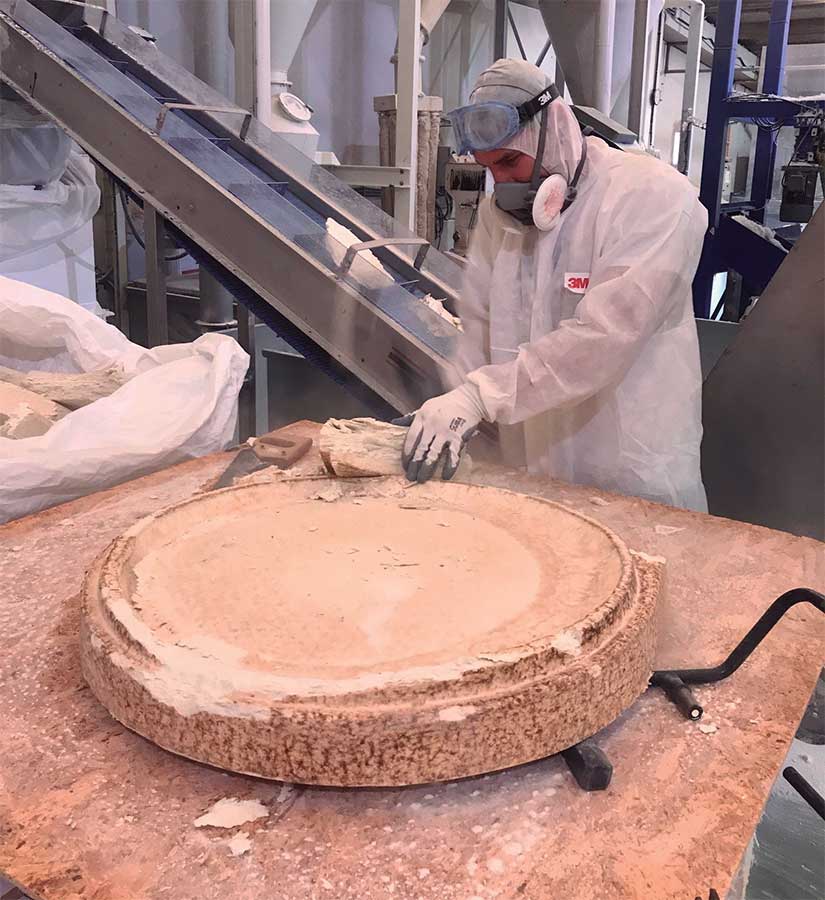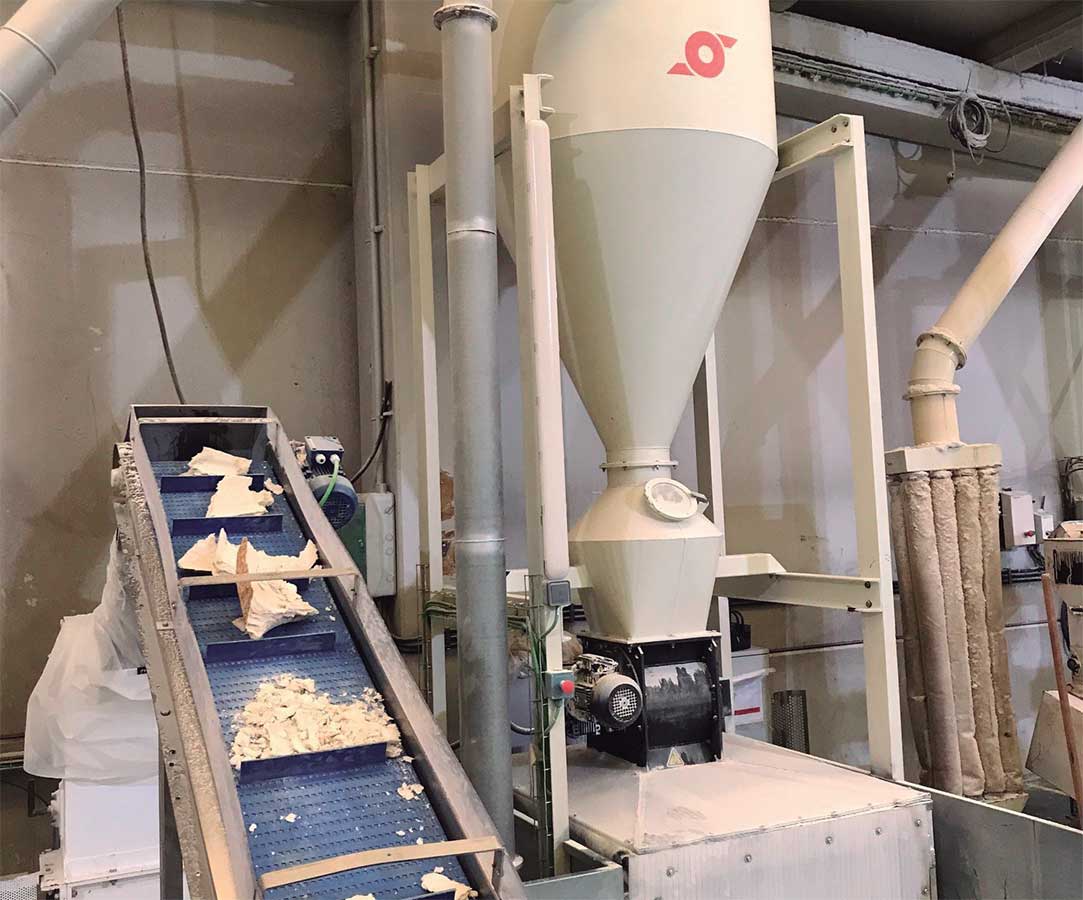RECAISCER
RECYCLING THERMAL INSULATING REFRACTORY MATERIALS
THE MANUFACTURING PROCESS OF THERMAL INSULATION REFRACTORY MATERIALS GENERATES waste from manufacturing rejects and dust from machining operations containing silica fibres and biosoluble fibres, which can be recycled to manufacture new parts. Introducing recycled raw materials necessarily changes the manufacturing parameters of vacuum formed parts, but it is not known how.
NUTEC PROCAL, a high-technological manufacturer of high temperature fibre vacuum formed parts, has worked with the CEIT technology centre to develop RECAISCER.

DRIVING FACTOR


 OBJECTIVES
OBJECTIVES
- Eliminate up to 270 tonnes of materials currently ending in landfill.
- Create recycling lines for two types of materials: on the one hand, fibre (from slip preparation operations, milling process, and machining operations of the formed parts); and out-of-tolerance parts on the other.
- Classify fibres by composition, size, or forming properties.
- Analyse thermal-mechanical properties of the materials generated.
- Study the compatibility between additives and fillers used in out-of-tolerance vacuum-formed parts.
 RESULTS
RESULTS
- A dust separation system is implemented according to the different fibres which make up dust.
- The powder produced satisfactory results in its contribution to the recycled parts.
- Definition of new formulations based on the granulometric analysis of material from out-of-tolerance parts.
 CONCLUSIONS
CONCLUSIONS
- RECAISCER does not affect the waste value chain since it disposes of waste produced in the plant.
- Implementation requires suitable partners for grinding, screening and sorting fibre products.
- RECAISCER provides a method to analyse the reuse of waste from high-temperature fibre-based products, such as those generated by companies repairing furnaces or installing thermal insulation material.
ENVIRONMENTAL
TECHNICAL
ECONOMIC
COMMERCIAL
ON THE MARKET

